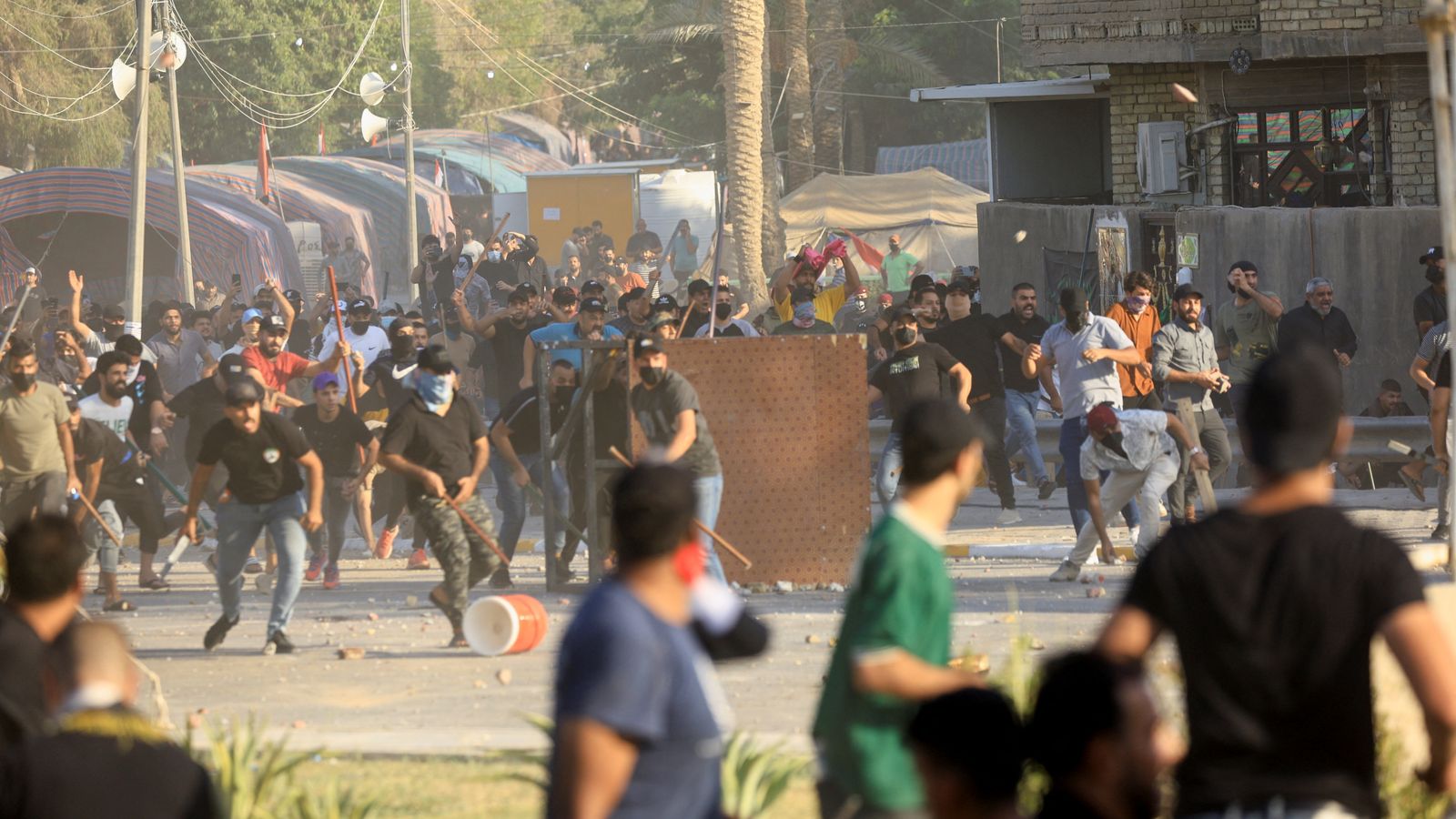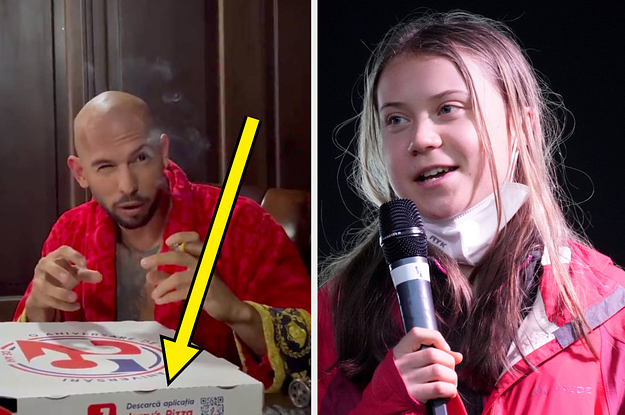At least 15 people have been killed in Iraq after protesters stormed the country’s government palace following the resignation of an influential Iraqi Shiite cleric.
Hundreds of protesters mobbed the building in Baghdad, sparking violent clashes with security forces after Muqtada al-Sadr announced he is quitting Iraqi politics and ordered the closure of his party offices.
Several demonstrators were wounded by gunfire and a dozen more were injured by tear gas and physical altercations with riot police, medical officials said.
In response to the unrest, a nationwide curfew was announced at 7pm and the caretaker premier suspended cabinet sessions.
The military called on the cleric’s supporters to withdraw immediately from the heavily fortified government zone “to prevent clashes or the spilling of Iraqi blood”, according to a statement.
Iraq’s government has been deadlocked since Mr al-Sadr’s party won the largest share of seats in parliamentary elections in October, but not enough to secure a majority government.
As a result, the country was catapulted into political uncertainty with Mr al-Sadr’s refusing to negotiate with his Iran-backed Shiite rivals and exiting from talks.
Demonstrators breach Baghdad’s parliament in protest over PM nomination in Iraq
Iraq: Fire kills 82 patients at Baghdad hospital treating COVID patients after oxygen tank exploded
Baghdad: At least 32 killed and dozens injured in twin suicide attack on Iraq’s capital
To further his political interests, Mr al-Sadr has wrapped his rhetoric with a nationalist and reform agenda that resonates powerfully among his broad grassroots base, who hail from Iraq’s poorest sectors of society and have historically been shut out of the political system.
They are calling for the dissolution of parliament and early elections without the participation of Iran-backed groups, which they see as responsible for the status quo.
Mr al-Sadr’s resignation has appeared to be in reaction to the retirement of Shiite spiritual leader Ayatollah Kadhim al-Haeri, who is followed by many of the cleric’s supporters.
Burning tyres, blocked roads and a swimming pool
During Monday’s protests, hundreds of people pulled down cement barriers outside the government palace, breached its defences and many of them rushed into the building’s marbled halls.
Pictures showed dozens of protesters swimming in the palace’s pool, with some holding up a picture of Mr al-Sadr.
Demonstrations also broke out in the Shiite-majority southern provinces, with Mr al-Sadr’s supporters burning tyres and blocking roads in the oil-rich province of Basra and hundreds protesting outside a local authority building in Missan.
Iran considers intra-Shiite disharmony as a threat to its influence in Iraq and has repeatedly attempted to broker dialogue with Mr al-Sadr.
In July, his supporters broke into the Iraqi parliament to deter his rivals in the Co-ordination Framework, an alliance of mostly Iran-aligned Shiite parties, from forming a government.
For more than four weeks, hundreds of protesters have been staging a sit-in outside the building and Mr al-Sadr’s bloc has resigned.
The Framework is led by Mr al-Sadr’s rival, former prime minister Nouri al-Maliki.
Not the first time Mr al-Sadr has resigned
This is not the first time Mr al-Sadr has announced his retirement from politics – and many have dismissed the latest move as another bluff to gain greater leverage against his rivals.
But many worried about how it will impact Iraq’s fragile political climate, with Mr al-Sadr’s move giving his followers the green light to act in ways they feel are appropriate.
Mr al-Sadr derives his political power from a large grassroots following, but he also commands a militia and has a great degree of influence within Iraq’s state institutions through the appointments of key civil servant positions.
Read more: Demonstrators breach Baghdad’s parliament in protest over PM nomination in Iraq
His Iran-backed rivals also have militia groups.
The UN mission in Iraq described the protests as an “extremely dangerous escalation”, and called on demonstrators to vacate all government buildings to allow the caretaker government to continue running the state.
It urged all to remain peaceful and “refrain from acts that could lead to an unstoppable chain of events”.
“The very survival of the state is at stake,” the statement said.








